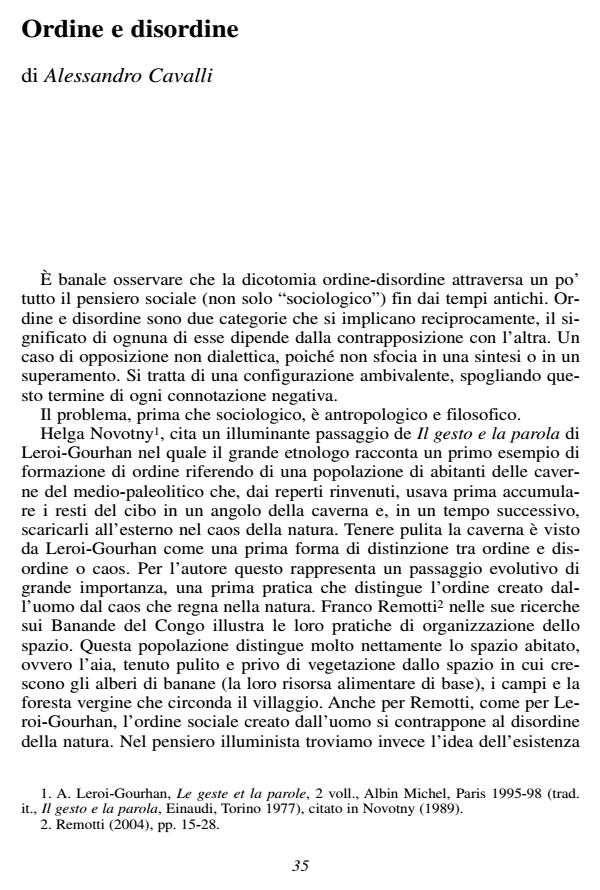Ordine e disordine
Journal title SOCIOLOGIA DEL LAVORO
Author/s Alessandro Cavalli
Publishing Year 2007 Issue 2007/105
Language Italian Pages 14 P. 35-48 File size 60 KB
DOI
DOI is like a bar code for intellectual property: to have more infomation
click here
Below, you can see the article first page
If you want to buy this article in PDF format, you can do it, following the instructions to buy download credits

FrancoAngeli is member of Publishers International Linking Association, Inc (PILA), a not-for-profit association which run the CrossRef service enabling links to and from online scholarly content.
In social thought, we can very schematically identify three main perspectives on the concept of order: i) order as intentionally planned social form: the idea of the order as a social result of a plan deployed from the top has a long history (from Platone to the totalitarian experience); ii) order as a non intentional spontaneous social form: opposite to the former perspective, this interpretation comes from the famous poem of Mandeville, through the works of authors like Smith, Durkheim and von Hayek; iii) moral order, that is the typical Durkheim’s concept that the social order expresses substantially a moral order corresponding, in the industrialised modern society, to the organic solidarity. The sociological traditional thought has two further possible perspectives for fruitfully exploring the issue of the social order: Simmel’s approach, emphasising the role of the level of social interaction; and Weber’s framework based on the famous typology of forms of social action. After introducing and discussing these perspectives, the author concludes pointing out three general conditions for maintaining the analytical usefulness of the dichotomy order/disorder.
Alessandro Cavalli, Ordine e disordine in "SOCIOLOGIA DEL LAVORO " 105/2007, pp 35-48, DOI: